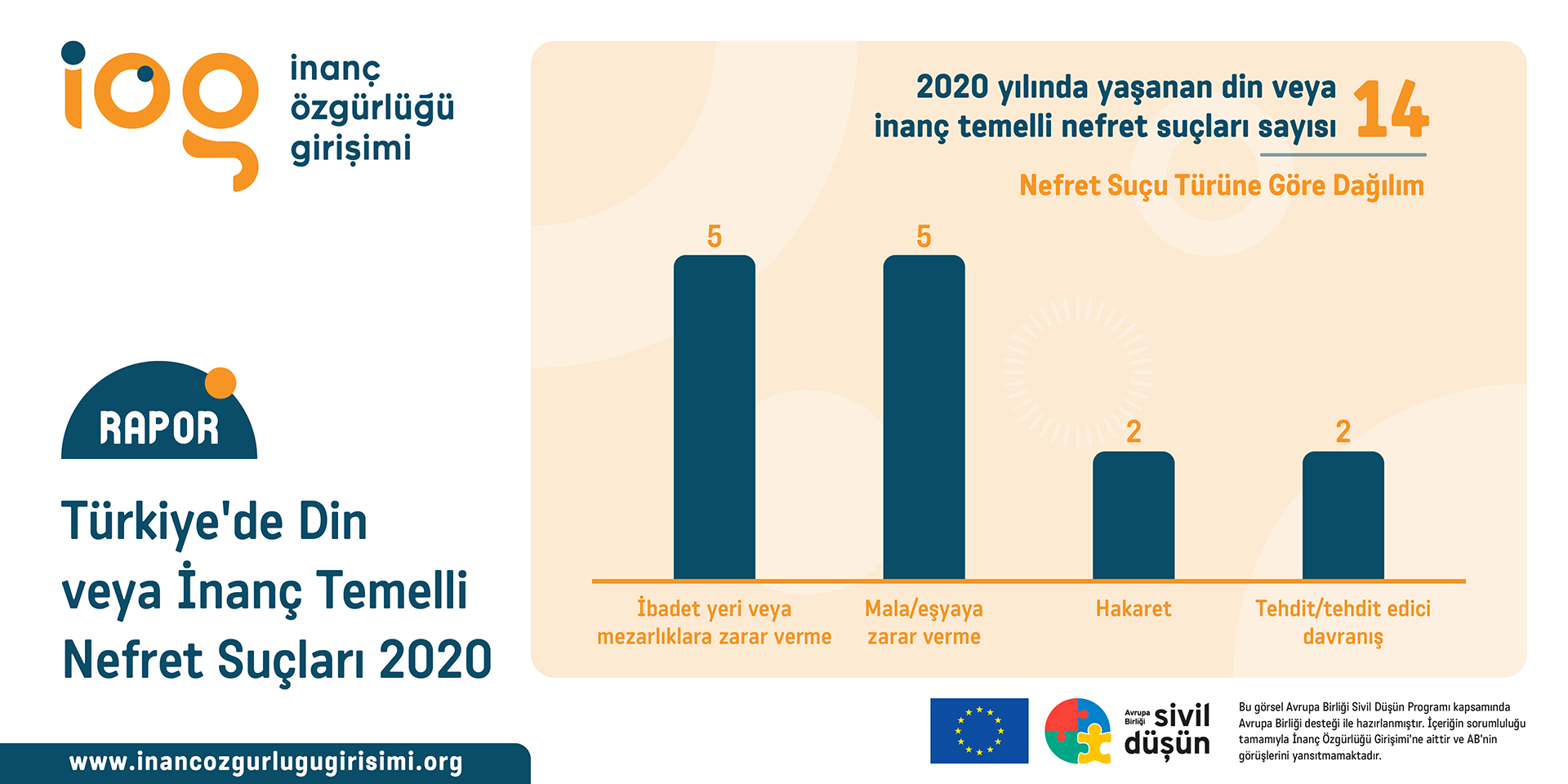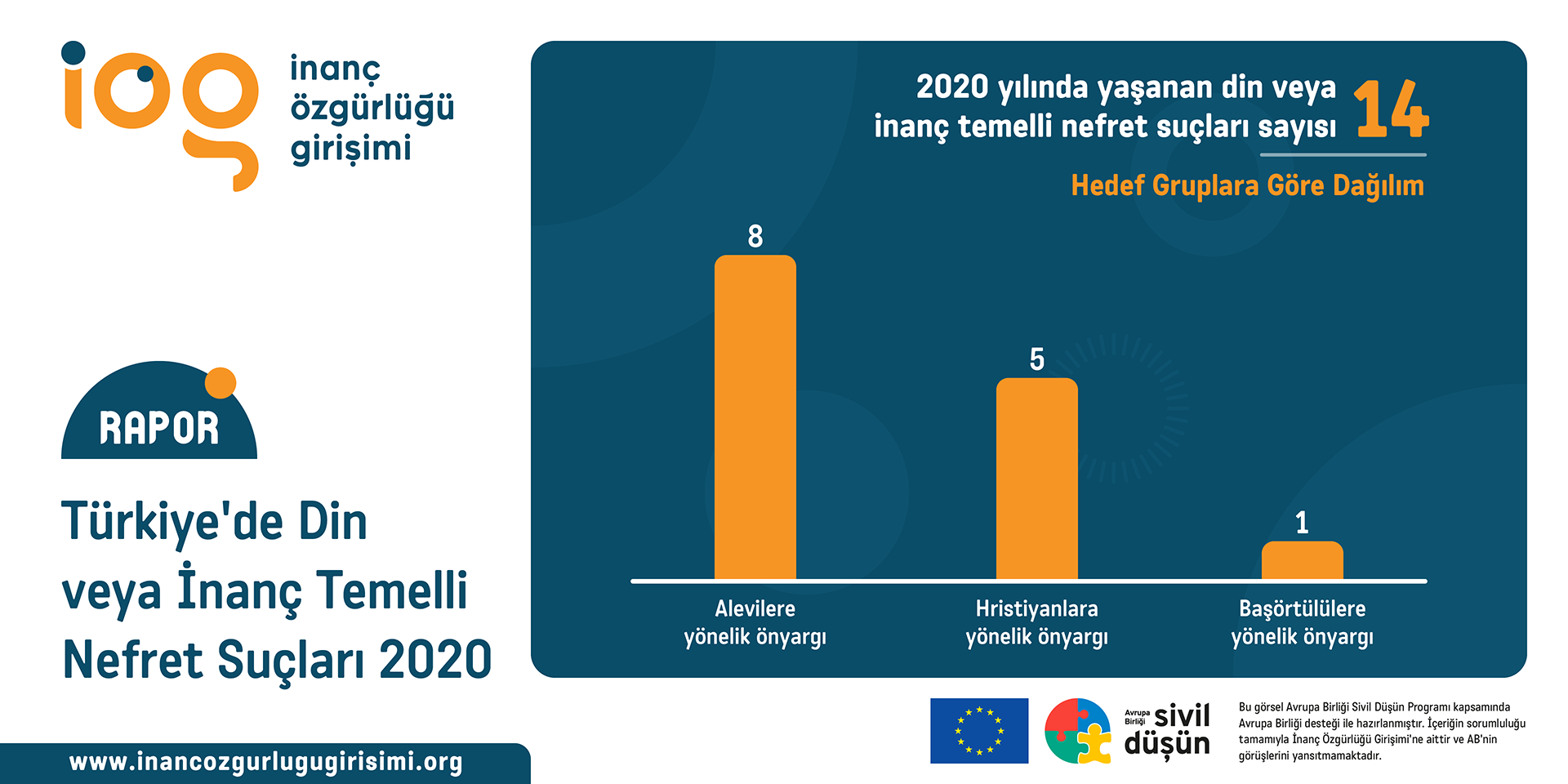
As part of the monitoring activities carried out by the project, the "Religion and Belief-Based Hate Crimes in Turkey 2020" report, which was prepared to prevent hate crimes committed with a religious or belief-based motive, and to prevent impunity for hate crimes, was published. In the report, Turkey's policy on hate crimes and the data obtained from the monitoring study on religion or belief-based hate crimes in Turkey in 2020 are analyzed based on international human rights standards.
The report was prepared by the Freedom of Belief Initiative team, written by Dr. Mine Yıldırım and Funda Tekin. According to Yıldırım, the director of the project, “hate crimes are not properly recorded and shared with the public. Suspicion of hate crime needs to be detected from the moment the law enforcement officers step in, and accordingly, recording, effective investigation, evidence collection, and support to victims must be provided. Effective prosecution and appropriate enforcement will ensure that hate crime does not go unpunished. Victims of hate crimes need to see that the responsible public institutions and authorities fulfill their obligations and have the support of the wider community. Turkey can take these steps, but it is too late”.
According to the information in the report, reporting hate crimes and recording them by public authorities is not sufficient. Hate crimes committed with the motive of prejudice against religious or belief communities, places of worship, and other places associated with these communities, religious and spiritual leaders and their members continue, and hate crimes often go unpunished.
The report, which scans the legislation and judicial decisions that can be dealt with regarding hate crimes in Turkey, is based on bias motives against Jews, Christians, Muslims, people who wear headscarves, atheists, and Jehovah's Witnesses for the categorization of hate crimes. In addition, the report draws attention to the recommendations of the UN, the Council of Europe, and the OSCE along with the case-law of the ECtHR on the subject. The report, which also discusses the differences between the concepts of hate speech and hate crime, also includes the demand of victims of hate crimes that the justice system, which has historically focused on the criminal, handles it for them.
The study also includes concrete information on the fact that Turkey has not taken effective steps regarding hate crimes, stating that the recommendations of the UN member states regarding the legislative amendments and the publication of disaggregated data are only noted by Turkey.
In the report, it is stated that within the scope of the monitoring study, 14 hate crimes or incidents related to religion or belief were detected between January and December 2020. Accordingly, 8 of these incidents include prejudice against Alevis, 5 against Christians, and 1 against headscarved people. Types of incidents are classified as damage to places of worship or cemeteries, damage to property/property, insult, and threatening/threatening behavior.
Hate crime cases in 2020:


Recommendations in the report are made for public authorities, civil society, and religious or belief communities. Some of these suggestions are:
- Legislation on hate crimes to prevent and combat all hate crimes, including hate crimes based on religion or belief,
- Disaggregated registration of hate crimes and effective investigation, prosecution, and enforcement of appropriate sanctions,
- Taking multidimensional measures for the needs of victims to support them,
- Strengthening information sharing and cooperation between law enforcement, civil society, and religious or belief communities.
- The data in the report, which was prepared to increase the visibility of religion or belief-based hate crimes, was also submitted to the OSCE within the scope of the 2020 assessment. It is aimed to expand the monitoring work with the contributions of religious or belief communities and to cooperate on advocacy. In 2020, the Initiative sent a notification to the OSCE regarding religion or belief-based hate crimes in Turkey 2019, and these data were used in the “2019 Hate Crimes Report” published by the OSCE.
Please click to access the report.




